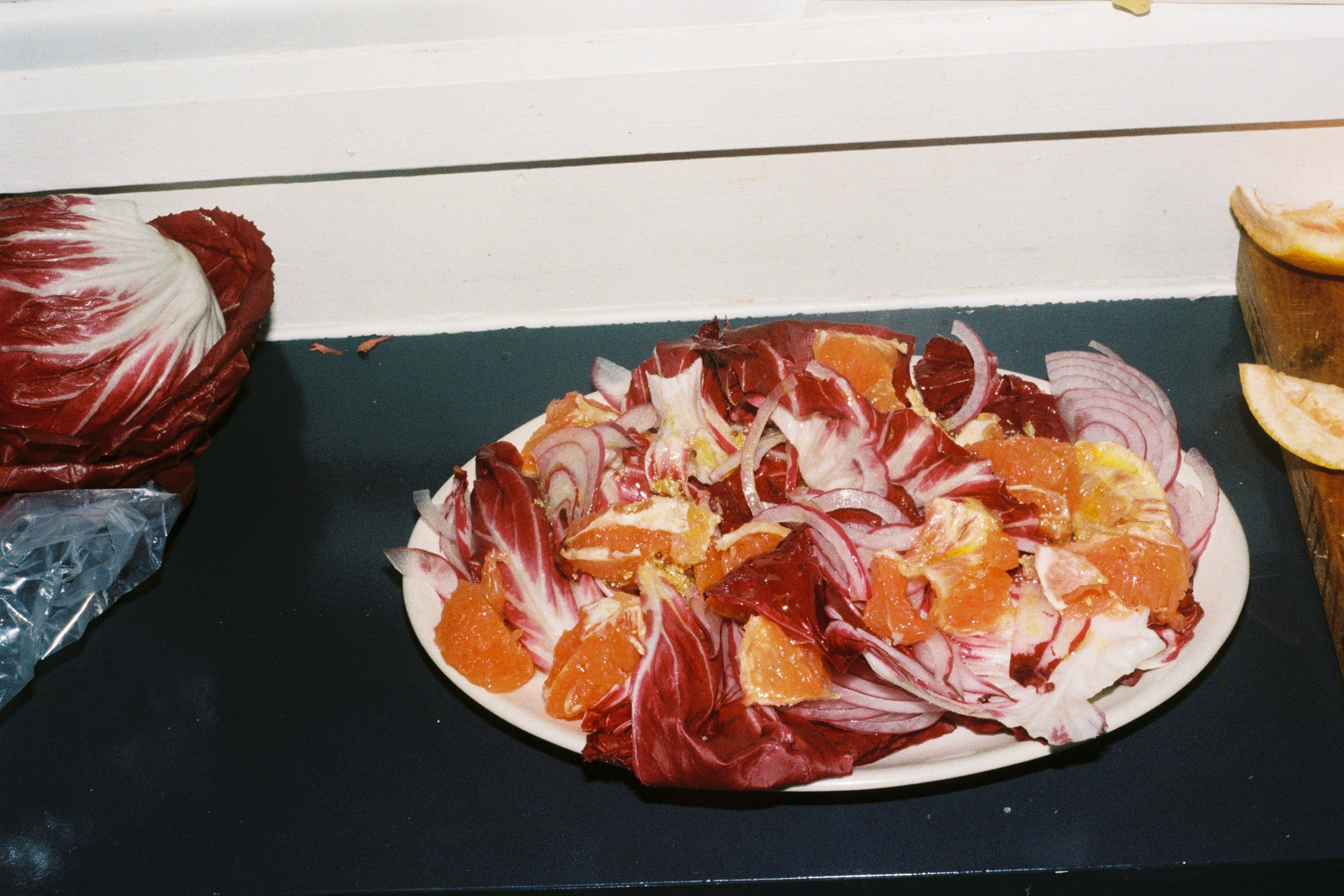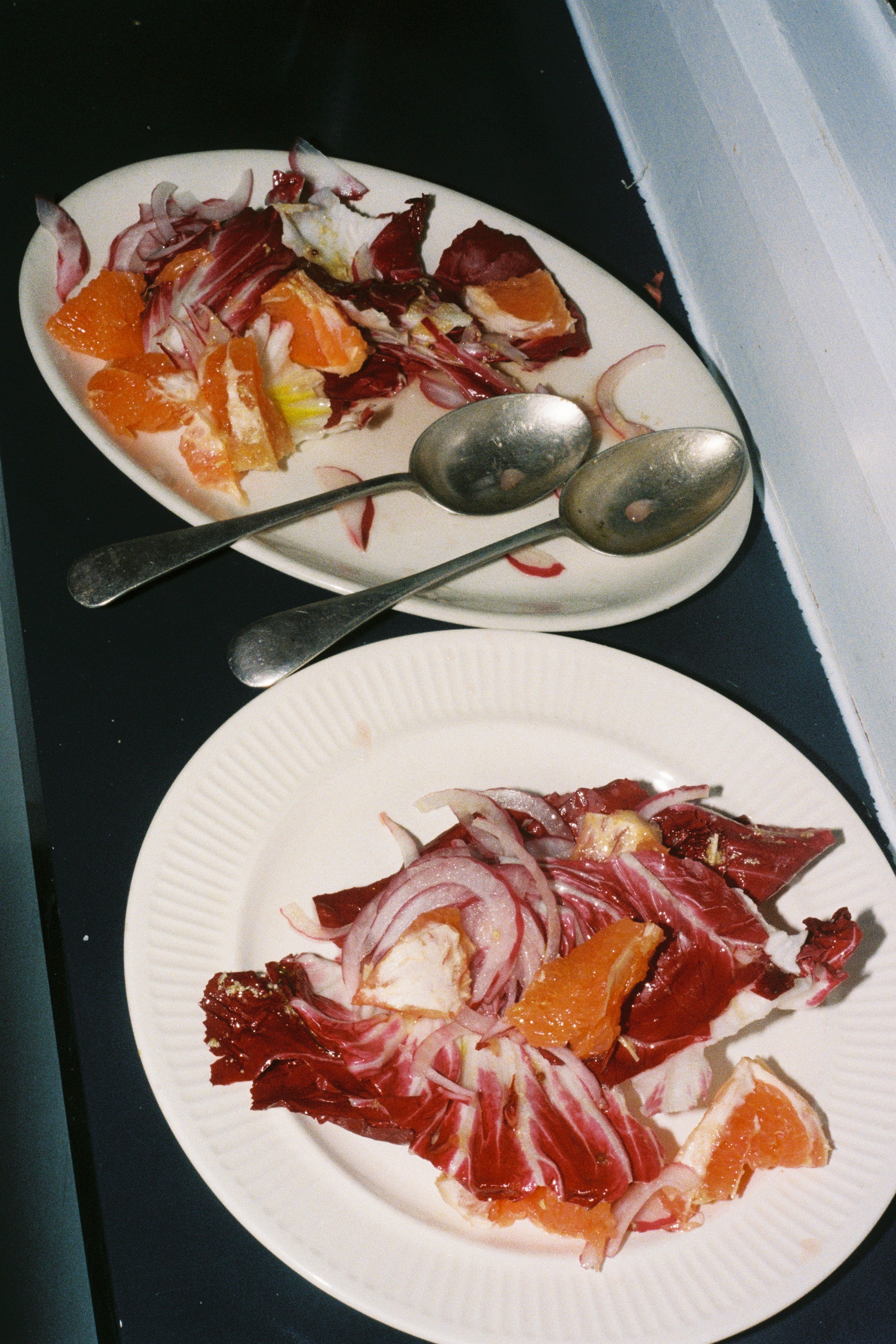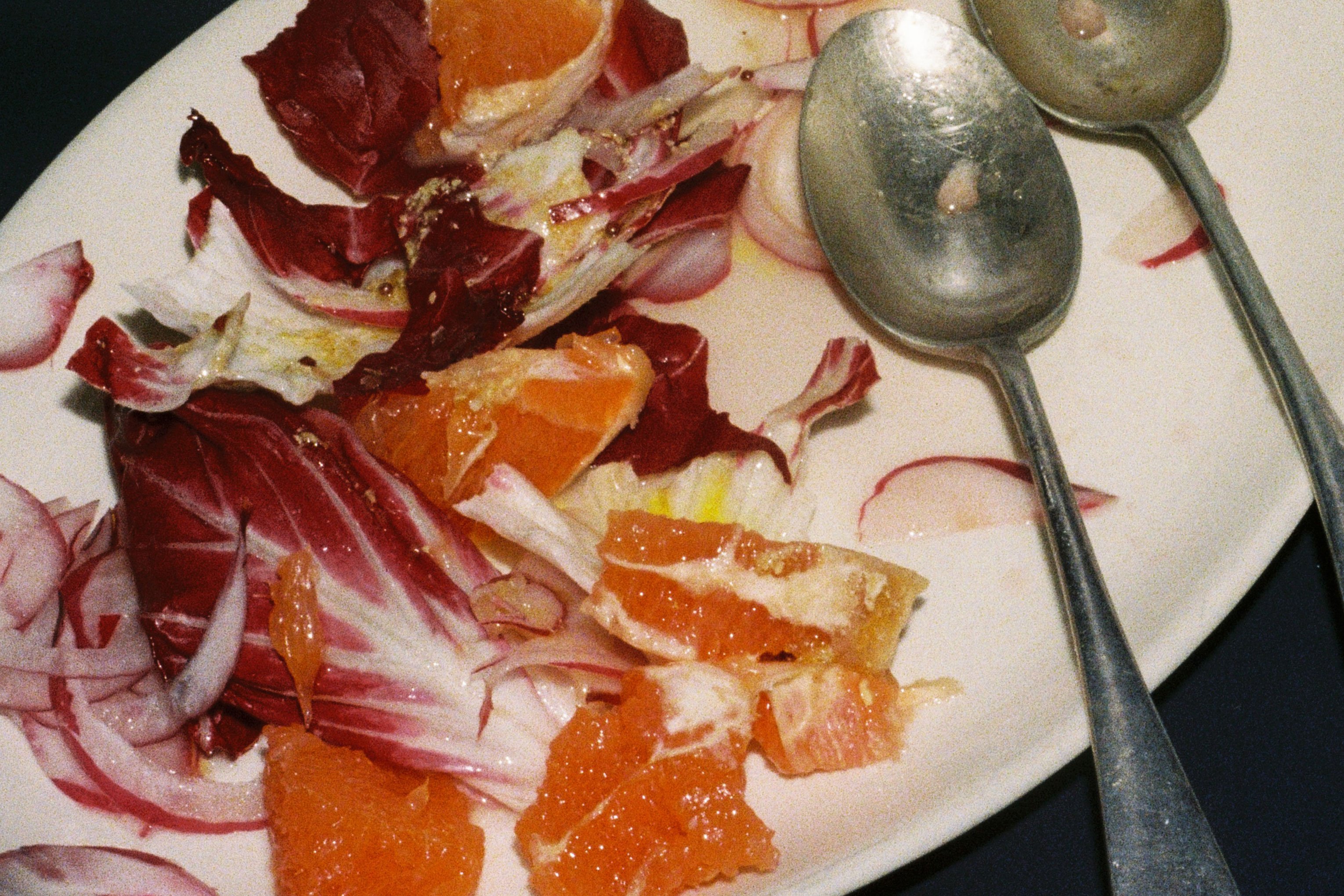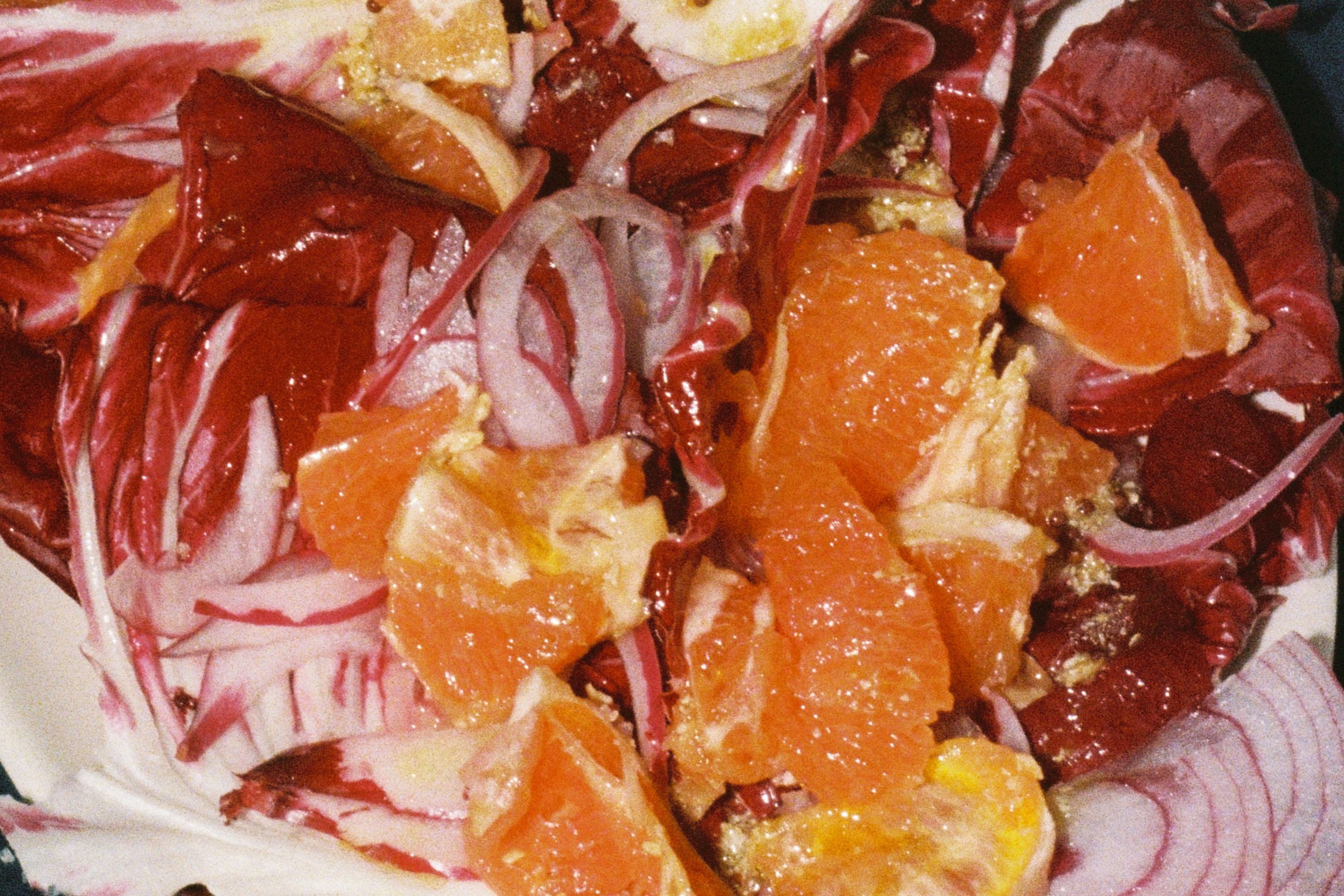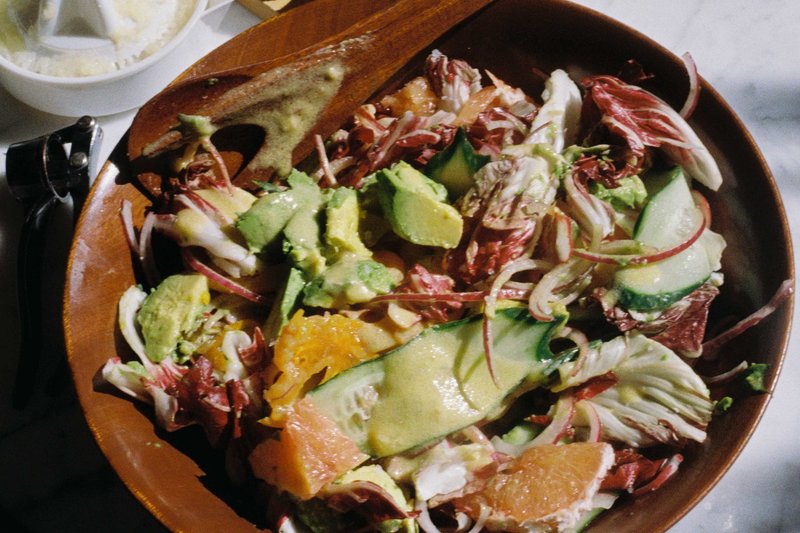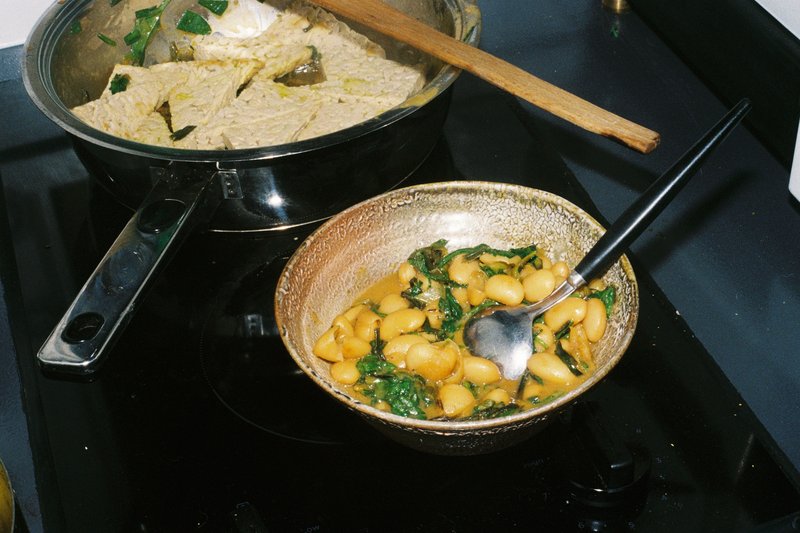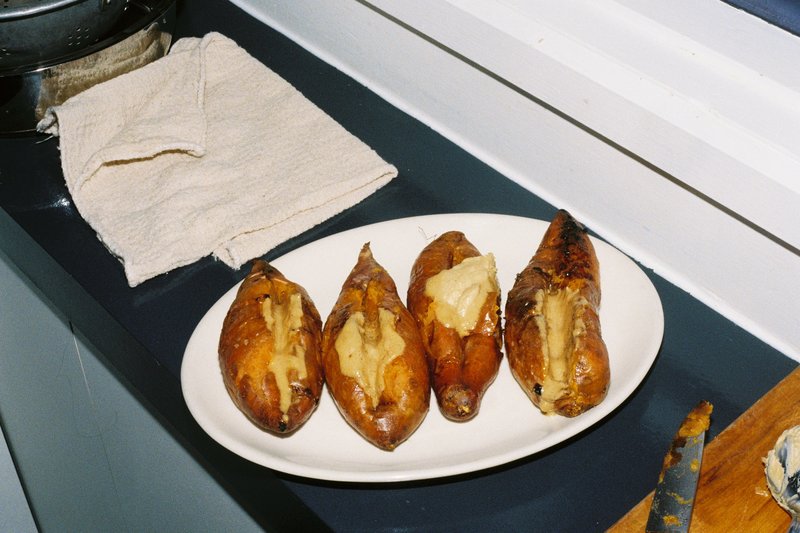A salad and reads for health seekers!
Every meal is an opportunity to focus on abundance. Make sure you’re covering off your intake of vitamins and minerals, sans the supplements, by filling your plate with as many different plant foods as possible. For me this salad was an attempt to work in produce I would not usually have access to, as in, what I could find in the supermarket! I found a produce supplier that offered home delivery and added to cart all sorts of wonderful, white asparagus, candy beetroots, watermelon radish, graffiti eggplants, heirloom tomatoes and radicchio. A welome addition to any meal, this blush-toned radicchio and citrus salad dressed with an apple cider vinegar dressing makes for a bright, tangy, and herbaceous side. And hopefully it acts as a reminder to eat more salad!
Beyond diversity if you can, opt for spray free or organic produce. Conventionally, the majority of food is grown with synthetic fertilisers, chemical pesticides and insecticides. It may or may not contain genetically engineered organisms and/or genetically modified organisms. Organic produce cannot be grown with all the above and where a grower states spray free, common place at produce markets, you are reaping the benefits of foods grown without artificial inputs which go against Mother Nature, the Earth and us who are of the Earth. Every day, we are making decisions that will ultimately impact our health, near or long term. We are in control of our health and the more we understand the fundamentals of human nutrition and are open to receiving and acting on this information, we can avoid disease (to a degree, genetics and environmental exposures play a role) and age very differently.
